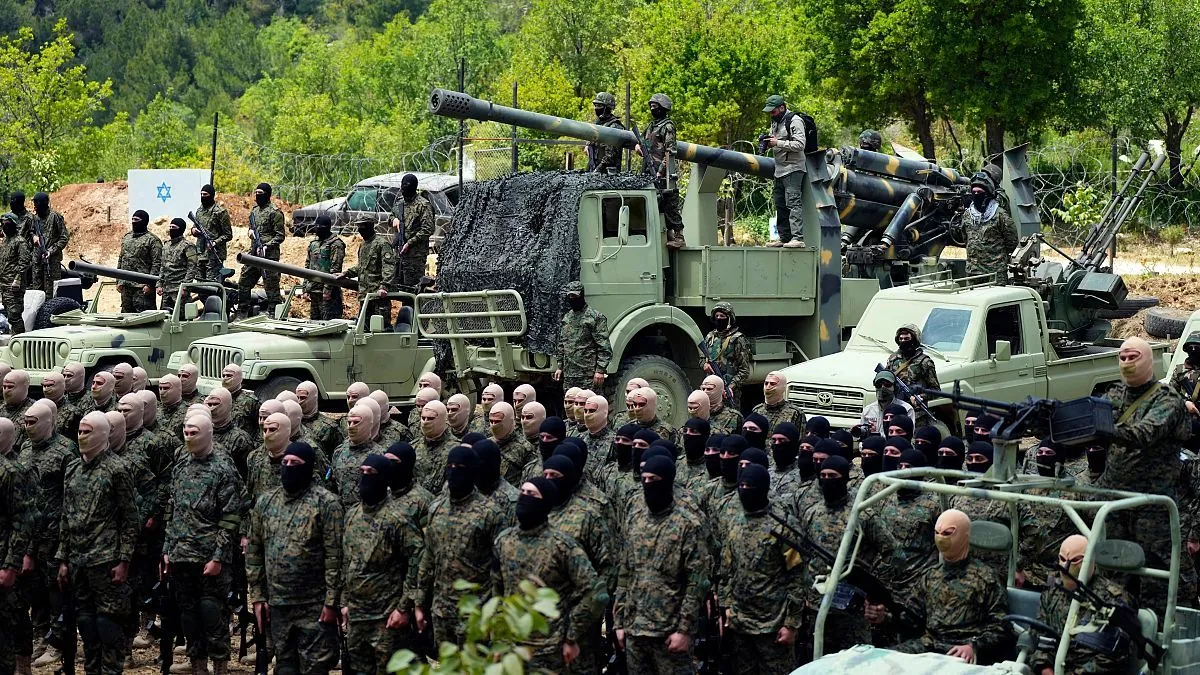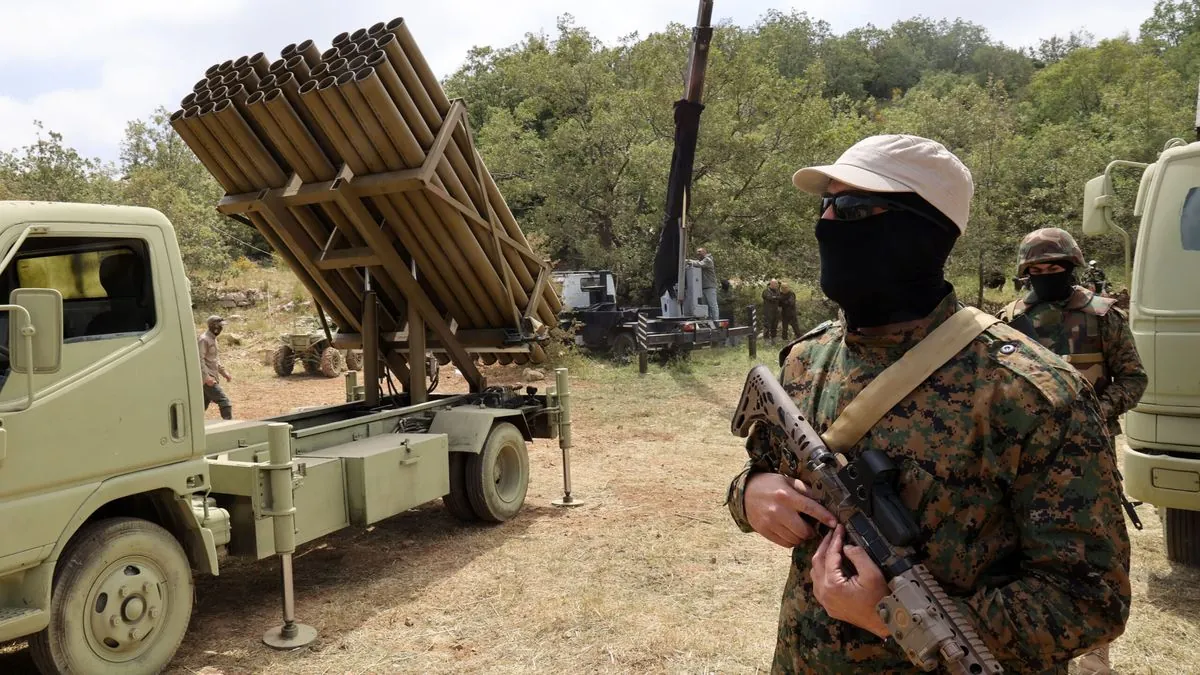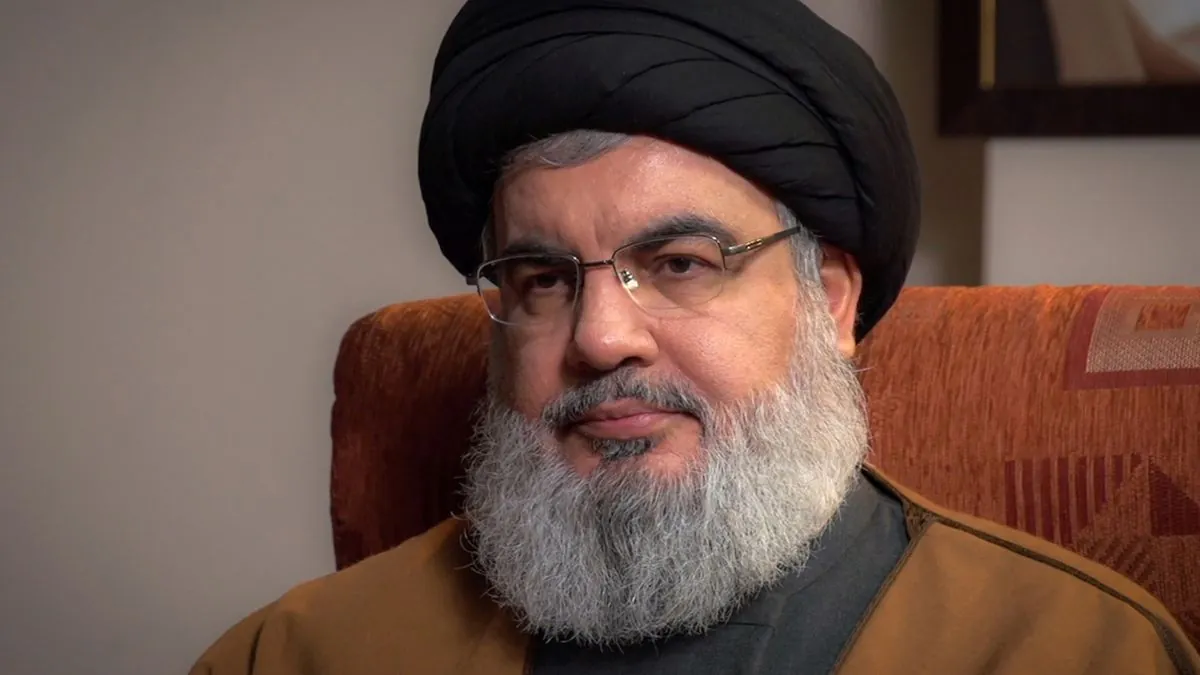Hezbollah-Israel Tensions Escalate: A Comprehensive Look at the Militant Group
Tensions between Israel and Hezbollah intensify, raising concerns of a potential war. Explore Hezbollah's history, capabilities, and its leader Hassan Nasrallah's role in shaping the organization's future.

The ongoing confrontation between Israel and Hezbollah has reached a critical point, with both sides engaging in increasingly aggressive actions. This escalation threatens to transform the year-long exchange of fire into a full-scale conflict, raising concerns about regional stability.
Hezbollah, founded in 1982 during Lebanon's civil war, has evolved from its initial goal of ending Israel's occupation of southern Lebanon to become a multifaceted organization with significant political and social influence. The group achieved its primary objective in 2000 when Israel withdrew from southern Lebanon after a prolonged war of attrition.
The Iran-backed militant group's military capabilities have grown substantially since its inception. Hezbollah claims to have approximately 100,000 fighters and an arsenal estimated at 150,000 rockets and missiles. These include guided missiles and long-range projectiles capable of striking any location within Israel. The organization has also introduced new weapons, such as explosive drones and surface-to-air missiles, in its recent confrontations with Israel.

Hezbollah's military prowess is complemented by its political and social presence in Lebanon. The group holds seats in the Lebanese parliament and has representatives in most Lebanese governments. It also provides extensive social services, including schools and health clinics, in areas where it maintains a strong presence.
The organization's leader, Hassan Nasrallah, has played a crucial role in shaping Hezbollah's trajectory. Born in 1960 into a poor Shiite family, Nasrallah became the group's leader in 1992. He is credited with presiding over Israel's withdrawal from southern Lebanon and leading the 2006 war against Israel, which ended in a stalemate but bolstered Hezbollah's reputation.
"We have new weapons and capabilities."
Hezbollah's relationship with Iran has been instrumental in its rise to power. The group is part of the Axis of Resistance, a collection of Iranian-backed factions and governments. This support has enabled Hezbollah to consolidate its position as Lebanon's most powerful political and military actor.
Recent events have posed challenges for Hezbollah. The group suffered a significant blow when thousands of its communication devices exploded in various parts of Lebanon, resulting in 39 deaths and nearly 3,000 injuries. This incident, widely attributed to Israel, exposed vulnerabilities in Hezbollah's supply chain. Additionally, Israel has reportedly assassinated several of the group's senior leaders, including a top military commander.
As tensions continue to escalate, the international community watches closely, aware that any further intensification could have far-reaching consequences for the region. The complex interplay of military, political, and social factors surrounding Hezbollah underscores the challenges in addressing this ongoing conflict.



































